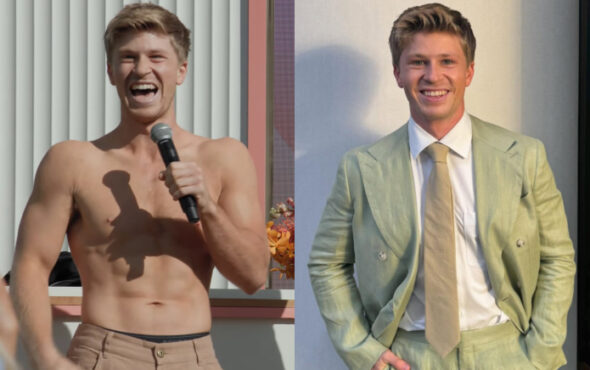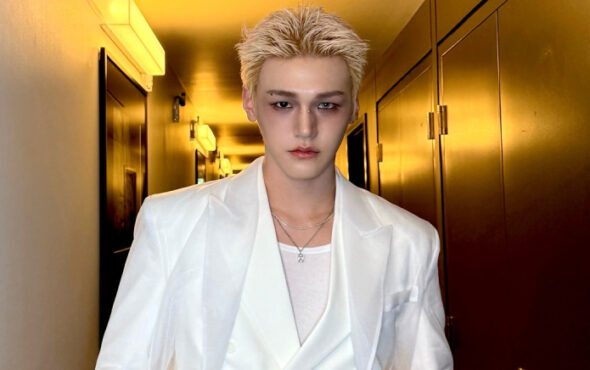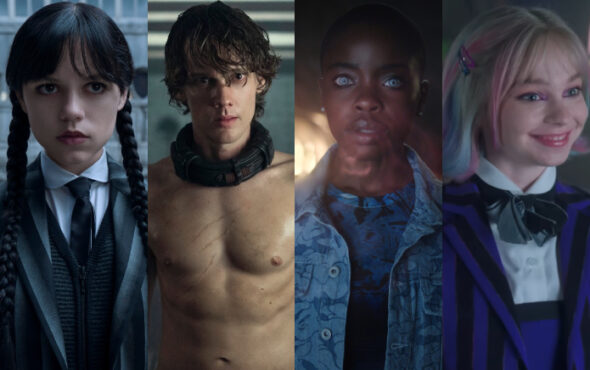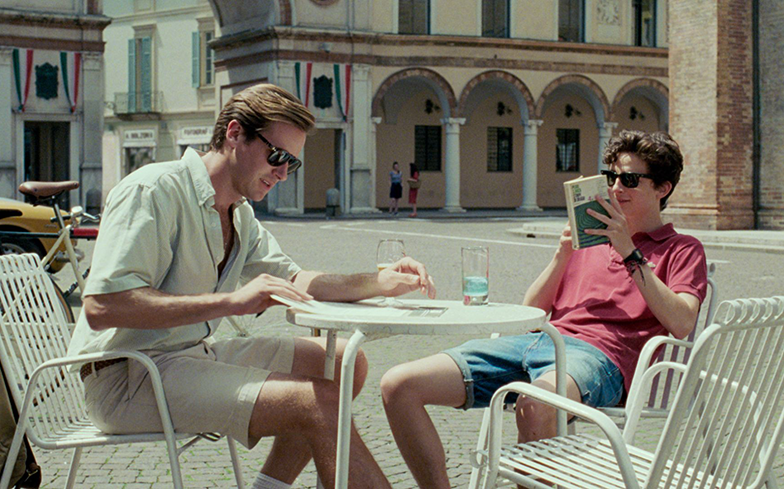
Just when you thought you were over that emotional final scene of Elio Perlman – played by Timothée Chalamet – intensely sobbing into the fire at the end of Call Me By Your Name, the book’s author André Aciman is back with a sequel to transport you back into their lives.
Find Me jumps ahead 10, 15 and 20 years from the events of that fateful summer in 1983 to find our beloved characters Elio and Oliver in very different places in their lives.
This follow-up is most likely not what fans of the first instalment are expecting, but André’s romantic and thoughtful writing style keeps those pages turning. Like its predecessor, we head back to Italy – as well as Paris and New York City – complete with references of classical lore, moments of uncertain desire, and with music taking characters back in time.
Here we speak with André about Find Me’s unexpected first half, if the Academy Award-winning success of Call Me By Your Name influenced his story in any way, and if this is the last time we are going to read about Elio and Oliver’s relationship.
Congratulations on Find Me. When I first read this novel, I was quite surprised because you dedicate the first half of the novel to Elio’s father, Samuel. So knowing that readers would be expecting to dive back into Elio’s mind from the off, why did you decide to start off from the perspective of his father instead?
It’s a good question, and I’ll give you a rather complicated answer because there are many answers. First of all, over the years after Call Me by Your Name got published, I figured there was another space between when the two parts and the 20 years later took place that I have to fill in. So I attempted quite a few times to go back to Elio’s voice, and the problem with that is it becomes derivative. ‘Oh, this is the same Elio that we’ve seen before.’ And now he doesn’t have to feel ashamed of what he feels or be reluctant because it’s already been opened. It sort of becomes kind of awkward, and so I felt like it was cheating, and trying to produce something because people said ‘we need the sequel.’ And so frankly I felt like I was writing something like Rocky 3, or Rocky 4, or Rocky 5, and I didn’t want to do that. Then I left the whole project, and I started writing about a person in his fifties riding a train with a very beautiful woman sitting next to him, which actually happened to me when I was in Italy once. She got off the train two stations later, but I was left feeling extremely inspired by the situation. And I started writing it right there and then on the train. Eventually, I realised – and it took me a while – that this could be Elio’s father, and he would meet Elio later on in the chapter. And that’s how I think it works, Elio comes in obliquely from the wings, as it were. And it becomes necessary for Elio to tell his father something very much like what his father had told him 15 years earlier. You know ‘Dad, don’t fuck it up, don’t ruin it, I love seeing you in love.’ Now, how many sons say that to their fathers? ‘I love watching you be in love with someone’ or something along those lines.
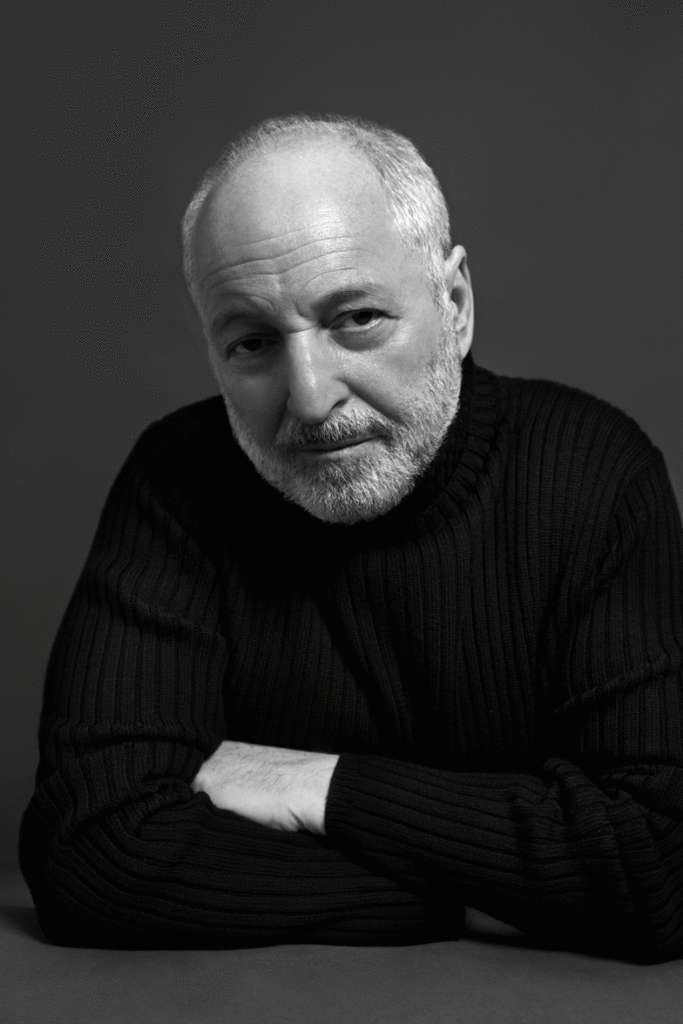
Obviously that led then to not only you writing in Samuel’s perspective and Elio’s but also for the first time ever we get Oliver’s perspective as well. Did you decide that after, or did you always want to do that?
I knew that it was going to have to be that way. Mainly, there were three men, and I wanted each one of them to have his say, have his perspective. It was difficult to write Oliver’s perspective, though it’s much shorter than Samuel’s, for example, because he’s changed. He’s no longer this kind of ebullient, self-confident type who walks into a bar and meets everybody, and everybody can’t wait to play cards with him. He’s now the kind of person who says ‘I used to have a good time doing this, this was easy once upon a time, why has it become difficult?’ So we have a different perspective on Oliver. And I wanted to capture that because he’s now older, and he’s a bit more insecure and the weight of time is on his shoulders.
When we catch up with Oliver he seems more unsure about his life then he was back in 1983.
Right, exactly! And that’s what I wanted to convey to people. And then, of course, you’re back to Elio being almost like the 17-year-old that we had left 20 years before, basically in bed with Oliver.
You’ve said that Oliver and Elio have always been with you, but what was the first instance when you decided you wanted to share this part of their story with the rest of the world in the shape of this novel?
I wanted to tell it about a year and a half after Call Me By Your Name was first published and I had finished a subsequent novel, and that’s when I started. So I always wanted to. I was saying this to somebody else the other day, when I was writing Call Me by Your Name, I was writing every day very very fast. Whatever piece of music was playing on the radio inspired me. And when I hear the same music again, or the same song, I feel like ‘God, I’m homesick for being in Italy, in the town with Elio and Oliver as they’re trying to get something happening between them.’ And I missed it, I always missed it, so it was lovely going back to it. I wrote most of it over the past two years, and it made me feel very good. In other words, I didn’t have a reason for doing it, I just wanted to do it.
Did knowing that there’s high anticipation for a follow-up film to Call Me by Your Name influence the writing of Find Me? Did that ever enter your mind over the last two years, when you were working on this story that you’ve had for much longer?
It didn’t, because I couldn’t let it. I couldn’t write with that sort of anticipation, waiting in the wings, because I’m not that kind of writer. I don’t know how to produce something just for the purpose of manufacturing a novel, I just don’t know how to do it. I wish I did because then I would be writing detective novels or things of that nature. It was more like what the readership did, even before the film, is it gave me courage. It told me ‘You’re doing okay Andre, we support you.’ It gave me a sense of whatever insecurity I have as a writer, and I have plenty of insecurities as a writer, some of them were banished because of the support that was always out there. It’s nice when you’re walking down the street and someone goes ‘Oh, great book.’ You feel suddenly that there is support out there and that you’re not doing something that is totally outlandish and crazy and creepy or whatever. People loved it, and it’s nice to know that.
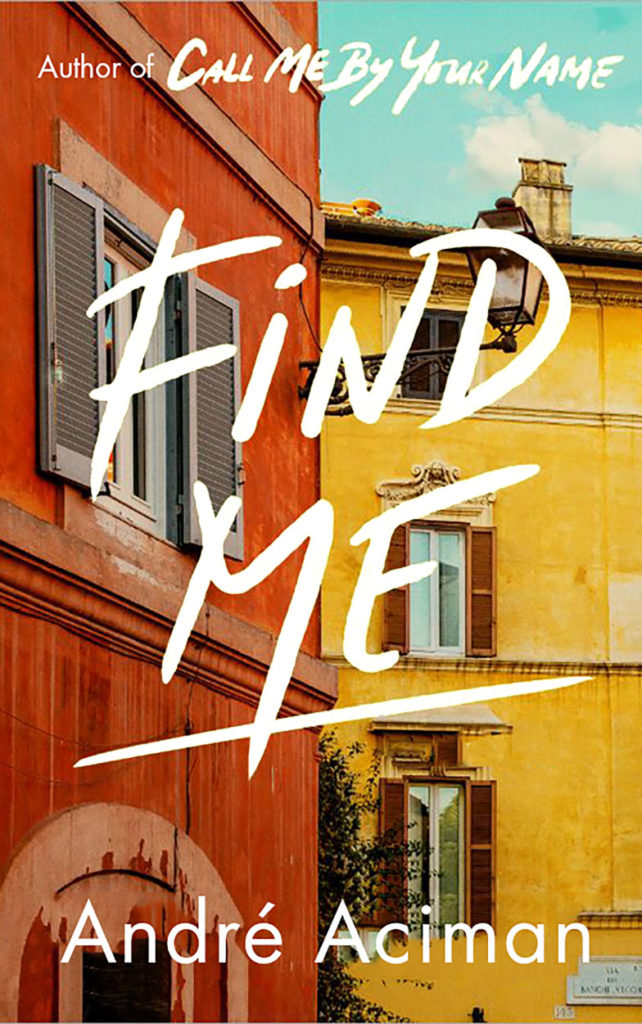
Touching upon that: because there is a huge love for the book and these characters, did you feel a sense of responsibility? The first time you were putting these characters on the page, no one knew about them, but now everyone feels like they know them and feels like they’re a huge part of their lives.
You know, because I’m so bad at writing plot – and that’s my signature that I don’t write plot – I had the characters, and the characters are mine as much as they are the public’s. But I wasn’t going to do anything crazy with them, I wasn’t going to damage them or ruin them, or anything like that. I just liked who they were. I almost respect them, even though they’re my own creation. I respect what they do, they’re decent human beings who have crushes on people, and who like people and who need people. And sometimes, like in the case of Oliver, they know that this cannot last, with his wife, just as Elio knows what he has with Michel may not last, but it’s beautiful and it’s formative.
I’d say this novel is as much about time as it is about love. So I wanted to get your thoughts on what you’ve learnt about time during your life, and what is your relationship with time?
Let’s put it this way: human beings do not understand time. And I think it’s Miranda’s father who says very interesting things about time. He says basically ‘Time doesn’t give a hoot what we think about time, because we don’t know how to think about time.’ And it may turn out that we as human beings and time as a physical factor out in the world don’t really jive, and don’t really work together. We are extraneous to one another and time always wins. All that time means, for me, is it equals death. As the more time passes, the closer you get to death, there’s no question about that. But the father says something that I believe in. That’s it’s not just enough that we leave good memories of who we were to the people who will survive us, but we would love them to take our lives, and all the things that we’ve mishandled and all the regrets we’ve had, and live them out for us even after we are dead. Now that doesn’t make any sense, but it’s is my wish that if time exists then we can at least have some sense of control over it – even if we can’t control our own death. But the fact that our lives do not end with us, our children or the people that we loved will take over our lives and live them better yet than we have. And that’s my message if I can be presumptuous enough to claim to have one.
With Call Me by Your Name, there was a lot of discussion around the age difference between Oliver and Elio. And then in this novel, there’s a lot of storytelling around relationships between people with even bigger age gaps. Did that feedback from the first novel have any impact on the way you formed these stories?
No, not at all. In my other book, Enigma Variations, there’s a boy who’s 12-years-old, and knows nothing about sex, and has a crush on an older man, who’s a carpenter or a cabinet-maker, so it’s the same thing. I understand the concern about age, and I wouldn’t do anything like that at all, nor do I uphold it. I write about gay people, straight people, young people, older people, male, female, different nationalities. I’ve always been a fan of things that are undefined or ambiguous. I’ve never been able to write about anything that is clear-cut or determinate. And I do find that in the age difference, there is something very interesting and compelling. In finding out that two individuals are not necessarily on the same plain, they’re not the same age, they are things to be discovered, each one brings something that the other one cannot have. If you take, for example, two 20-year-olds and put them together, they’ll know exactly what rock bands they’re talking about, what books they’ve read, what films they see, what things they do with their apps and so on, and the next thing you know they’re sleeping together. And if you have two 50-year-olds who are divorced and have children, the degree of discovery that each have, from a novelistic point of view, is very limited. Whereas if you take someone who is in her or his thirties and someone in their fifties, as in the case of the characters in my book, there’s a lot of crossing over that needs to be done. The old person brings wisdom, experience, maybe a touch of culture, the younger person is more energetic, more enthusiastic, more prone to wanting to discover new things. I think each brings something. I think that Sami wants to feel a degree of youth again, and that’s what Miranda brings to him. And Elio would love to find somebody who can help him remember what he had with Oliver years and years before. I love the idea that people are constantly crossing over.

In this novel, as well as having age gaps between partners, there’s also same-sex relationships at a time where attitudes weren’t as progressive, and there’s even a desire to have a three-way relationship. What draws you towards themes of what mainstream society could see as ‘unconventional’ love?
People find intimacy in sometimes the most unpredictable places, and they find the other person compelling because all the signals that they’re used to getting are not there. In other words, you have to understand the other person, more deeply than what normally would be the case. An example is the incest scene where Miranda confesses to Sami. It’s not that I’m interested in incest, I hate the idea. But it’s something that she feels very guilty about, or maybe she’s ashamed. So she will use that instance to confide something that she’s never confided to anyone in her life to Sami and say ‘Now that I’ve confided in this, there are no more secrets.’ It’s not that I’m interested in unusual sexual practices, it’s just that as human beings we have things we’re not willing to divulge to other people, or maybe we’re not willing to divulge to ourselves. And I like to go into those areas, highly ambiguous areas that don’t even have names sometimes. If I have to write about your classic alpha-male type, or whatever it is, your classic feminine type of woman, I’d be a very boring writer.
You know Elio and Oliver better than anyone, but did Timothée and Armie’s characterisations of them in the film change the way you see any part of the characters?
No, because I think they captured the characters perfectly. Let’s go for a moment in the film, where they slept together for the first time, in the book as in the film you sense that Elio is not happy with what happened between them. He is probably regretful, he’s ashamed or he doesn’t want to talk about, or even remember it. And they did that beautifully in the film and Armie Hammer did it perfectly. The look on his face as he is worried that maybe Elio is remorseful was perfectly handled. When I think back about the characters in that book, I no longer see the characters as I imagine them, even though I didn’t really imagine them much physically, I see them as Timmy and Armie Hammer. But when it came to continuing the novel, they’re much older, I had no model for them at all. They’re not the actors, they’re this kind of vacuous faces, because I don’t see character faces very clearly, so they’re clouded over and they’re back to being that.
Have you sent a copy of the novel to Timothée and Armie so they can see where these characters go, or haven’t you spoken to them yet?
[laughing] No, I don’t think I have. It’s not my job, it’s the publicists who should probably do that.
I’m sure they’re intrigued to see where these characters go.
I’m sure they found out, they’re always in touch with the producers so they will have found out. Maybe I should bring them a copy, I don’t even have their address, I don’t know anything. It’s the publicity people who know these things.

The ending of this novel almost feels like a new beginning. Does this mean there’s more of Oliver and Elio’s story to tell?
I think that it’s over. I obviously don’t want to give the spoiler away, but I won’t be the one to write about the next part. Somebody else could write that if they want to. I am, however, interested in two characters. I’m just fascinated by that little boy Ollie because I created him in the same way that I created that little girl, Vimini, who was seven years younger than Elio and who dies of leukaemia. I am interested in the boy and I am interested in the mother, I would love to at some point in my life write about what happens to the mother.
I came away from the novel really wondering about Adrien and Léon. I feel like there’s a whole story there to explore.
Oh, it would be nice. Yes, that’s a lovely story because I didn’t want to deflect from Elio and Michel. But there’s the story of this Jewish composer or pianist or violinist and the relationship he has with this rich kid. That’s the subject of a film in of itself.
Inevitably Find Me will be made into a sequel film, so is there a particular scene in this book that you’re looking forward come to life on screen?
You’re catching me out, as I don’t know yet! They spoke about sequels before they even saw the book and they never mentioned anything after they saw the book, so I don’t even know if there’s going to be a sequel at all. But I think there are some wonderful moments, like the scenes in Rome. When the older man and the younger woman decide to walk out in the streets of Rome late at night, I think it’s lovely. And the same moments between Michel and Elio at night as they’re going to walk to his apartment. I love walks, as you probably know.
I loved the idea of vigils too, and that whole aspect of memories attached to places.
I’m glad you did because it meant a lot to me. I’m that way, that was really taken out of my life because I do love to celebrate or at least to feel sad about places and spots in life where something happened or should have happened – doesn’t matter which one it is. And you’ve got to celebrate that moment and think about it.
André Aciman’s new novel Find Me will be available to buy from 28 October.

